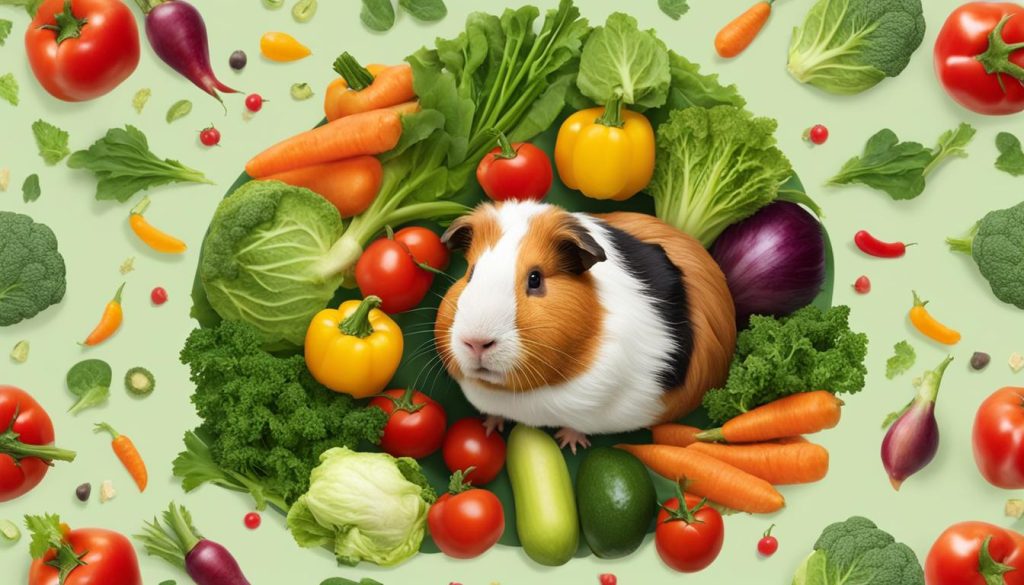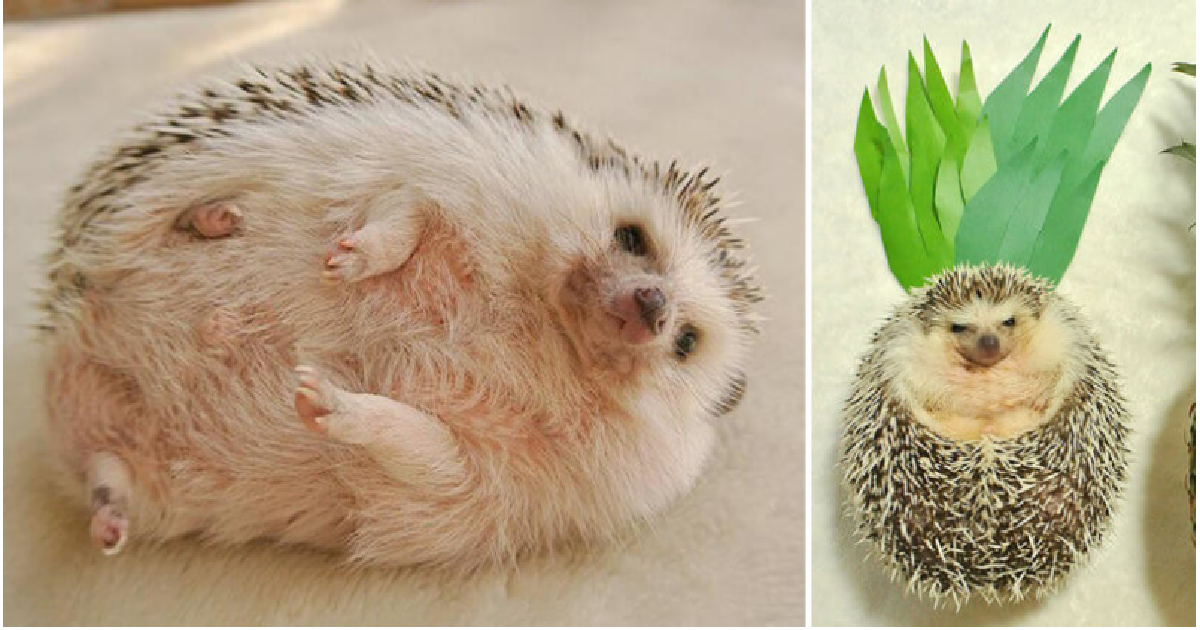In today’s article, I’ll be addressing one of the most common questions that guinea pig owners have: Can guinea pigs eat cucumbers? Well, the answer is yes, but there are a few things you should know before feeding your furry friend this crunchy vegetable.
Cucumbers can provide some nutritional benefits for guinea pigs, such as vitamin C and hydration. However, it’s important to remember that cucumbers should be given in moderation as they are not a significant source of nutrition compared to grass and hay, which make up the majority of a guinea pig’s diet. Too much calcium from cucumbers can have adverse effects, so it’s crucial to monitor their intake and seek advice from a veterinarian if needed. Feeding cucumbers can also help keep your guinea pig hydrated, especially during warmer weather.
Can Guinea Pigs Eat Cucumbers? The short answer is yes.
- Cucumbers can be a part of a guinea pig’s diet but in moderation.
- They provide some nutritional benefits such as vitamin C and hydration.
- Too much calcium from cucumbers can have adverse effects, so monitor their intake.
- Feed cucumbers gradually and in appropriate-sized pieces.
- Offer a variety of safe vegetables to ensure a balanced diet for your guinea pig.
Are There Any Downsides to Feeding Your Guinea Pig Cucumbers?
When it comes to feeding your guinea pig cucumbers, it’s important to consider both the health benefits and potential downsides. While cucumbers can provide some nutritional benefits, such as hydration and vitamin C, overfeeding them can lead to certain issues. One potential downside is the excessive intake of calcium, which can result in bladder stones, which can be quite painful for your furry friend. It’s crucial to monitor the amount of cucumber your guinea pig consumes and ensure it’s given in moderation.
Another potential issue with feeding guinea pigs cucumbers is the high-water content of this vegetable. While hydration is important, offering too much cucumber at once can lead to an upset stomach and diarrhea. To avoid digestive problems, it’s best to introduce cucumbers gradually into your guinea pig’s diet and monitor their response. Additionally, it’s important to provide a varied diet for your guinea pig, incorporating other safe vegetables to ensure they receive all the necessary nutrients.
When introducing new foods to your guinea pig, including cucumbers, it’s always a good idea to consult with a veterinarian. They can provide guidance on the appropriate portion sizes and help you create a balanced diet for your furry friend. Remember that every guinea pig is unique, so it’s essential to pay attention to their individual needs and preferences. By considering the potential downsides and taking a cautious approach, you can safely incorporate cucumbers into your guinea pig’s diet.
How to Feed Cucumbers to Your Guinea Pig
Feeding cucumbers to your guinea pig can be a nutritious and enjoyable addition to their diet. To ensure their safety and satisfaction, it’s important to follow the proper feeding guidelines. When offering cucumbers to your furry friend, it’s best to slice them into small, appropriate-sized pieces that your guinea pig can comfortably chew. This will prevent any potential choking hazards and aid in their digestion. While it is safe for guinea pigs to eat the entire cucumber, including the skin and seeds, make sure the cucumber slices are not too large for them to handle.
An alternative way to provide cucumbers is to slice them into spirals or tiny cubes. This can add some fun and variety to your guinea pig’s feeding routine. You can also consider using interactive toys, such as puzzle feeders or treat balls, to make mealtime more engaging. Placing small cucumber cubes inside these toys will not only provide mental stimulation but also promote physical activity as your guinea pig explores and solves the puzzle to retrieve their tasty treats.
Ensuring a Balanced Diet
While cucumbers can be a refreshing and hydrating treat for your guinea pig, it’s important to remember that they should not be the sole component of their diet. Guinea pigs require a balanced diet that includes a variety of fresh foods. Alongside cucumbers, you can offer other safe vegetables such as arugula, broccoli, cabbage, carrots, kale, turnip greens, and zucchini. Introducing a range of vegetables will provide your guinea pig with essential nutrients and prevent boredom.
When introducing new foods, including cucumbers, to your guinea pig’s diet, it’s crucial to do so gradually. This allows their digestive system to adjust and reduces the risk of any digestive upset. Start by offering a small amount of cucumber and monitor their response. If they tolerate it well, you can gradually increase the portion size. However, if you notice any negative reactions such as diarrhea or unusual behavior, it’s best to consult a veterinarian for guidance.
What Other Veggies are Okay for Guinea Pigs?
Guinea pigs can enjoy a variety of vegetables as part of their balanced diet. Besides cucumbers, there are other safe options that provide essential nutrients for your furry friend. Arugula is a leafy green that guinea pigs can munch on, while broccoli and cabbage offer additional vitamins and minerals. Carrots are a popular choice, providing a crunchy and vitamin-rich treat. Kale and turnip greens are also nutritious options to consider. Lastly, zucchini can add some variety to your guinea pig’s diet.

It’s important to remember that while these vegetables are safe for guinea pigs, they should be introduced gradually and in appropriate portions, especially if your pet is trying them for the first time. This ensures that their digestive system can adjust and prevents any potential stomach upset. Additionally, offering a variety of vegetables not only keeps your guinea pig’s diet interesting but also contributes to their overall health and well-being.
Feeding Guidelines for Safe Vegetables
When incorporating new vegetables into your guinea pig’s diet, it’s crucial to follow some simple guidelines. Firstly, wash the vegetables thoroughly to remove any pesticides or dirt that may be present. Secondly, chop them into small, bite-sized pieces to make them easier for your guinea pig to eat. Finally, remember to provide a balanced diet that includes a variety of safe vegetables, hay, and pellets to ensure your guinea pig receives all the necessary nutrients.
Conclusion
To sum up, guinea pigs can enjoy cucumbers as part of their balanced diet. While cucumbers offer some nutritional benefits, it’s crucial to feed them in moderation. By incorporating a variety of safe vegetables into their diet, we can ensure that our furry friends receive all the necessary nutrients for optimal health.
Remember, guinea pigs thrive on fresh food, so introducing new foods to their diet is a great way to provide them with enrichment and ensure they stay happy and healthy. However, it’s important to introduce new vegetables gradually and monitor their response to avoid any digestive problems.
By following these guidelines and keeping a close eye on your guinea pig’s diet and nutrition, you can provide them with a well-rounded and enjoyable eating experience. So go ahead and offer them some cucumbers, but always remember to prioritize a diverse range of fresh foods to keep your guinea pig’s diet exciting and nutritious!
FAQ
Can guinea pigs eat cucumbers?
Yes, guinea pigs can eat cucumbers, but they should be given in moderation. Cucumbers offer some nutritional benefits and hydration for guinea pigs, but they are not a significant source of nutrition compared to grass and hay.
Are there any downsides to feeding guinea pigs cucumbers?
Overfeeding cucumbers can lead to excessive calcium intake and potential issues with bladder stones. Offering too much cucumber at once can also cause an upset stomach and diarrhea due to its high-water content.
How should I feed cucumbers to my guinea pig?
It’s best to offer cucumbers in small, appropriate-sized pieces that your guinea pig can comfortably chew. Slicing them into spirals or tiny cubes are alternative ways to provide this food. Remember to introduce new foods gradually to avoid digestive problems.
What other vegetables are okay for guinea pigs?
Some safe vegetables for guinea pigs include arugula, broccoli, cabbage, carrots, kale, turnip greens, and zucchini. It’s important to provide a variety of vegetables to ensure a balanced nutrition and prevent boredom.






